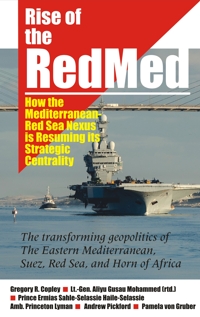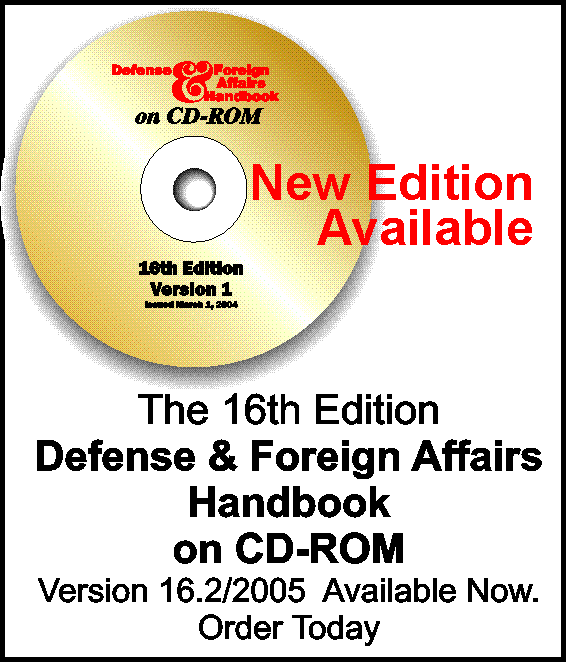
|
|
|
 |
 |
The Libya Policy Council/Group has, since it was formed at the beginning of 2002, gathered together thousands of pages of documentation on Libya's political and security situation, all based on an extensive HUMINT network established by Defense & Foreign Affairs inside Libya since 1972. The material, some of which is accessible through this website [see Special Reports: Libya link in the column to the right], has provided unique insights into the policies and activities within Libya, including extensive, unique documentation on Libya's WMD and missile programs. Despite denials of the veracity of these reports by some non-Libyan sources, Libyan leader Col. Mu’ammar al-Qadhafi himself in late 2003-early 2004 verified the accuracy of the Defense & Foreign Affairs/Libya Policy Group reporting. Significantly, this intelligence resource was the only one to consistently report — and report with great detail and accuracy — on the Libyan programs over the past decade.
As well, the newly-formed APC is bringing together the extensive reporting on African strategic issues undertaken over the past few decades by ISSA and Defense & Foreign Affairs, and is sponsoring additional reporting, research and analysis. The existing reports highlighted, well before the mainstream reporting, on the strategic importance of the development of West African offshore and onshore energy resources, and on the overarching trends toward stabilization which will make the region of great economic and strategic significance in the coming decade.
The group's extensive and, again, unique reporting on the Horn of Africa provides some of the only available strategic overview material on Ethiopia and Eritrea and on such issues as the strategic importance of Somaliland.
The APC is also bringing into a central collection some of the work undertaken by the group on African border and sovereignty issues, particularly focusing on the question of Swaziland's border and territorial reclamation, the Nigeria-Cameroon border settlement, the Somaliland sovereignty question, and so on.
The Africa Policy Council is designed to provide an educational resource for policymakers around the world and to do so by filling a void in strategic intelligence and analysis on Africa. Work done in preparation for the APC's creation, and by the Libya Policy Council, was used extensively in the ISSA-sponsored conference, Strategy2003: the Global Strategic Forum, held in Washington, DC, November 13-15, 2003.
The work of the APC is intended also to help African governments themselves obtain better regional and continental assessments and perspectives than have traditionally been available.
Funding for the work of the APC has come entirely from ISSA's general budget, but the Association would welcome funding support — tax exempt for US donors — to assist in the Council's work. ISSA President and APC Chairman Gregory Copley is available with any potential donor or supporter to discuss this issue, and the work which the Council undertakes.
The consistent intelligence collection, analysis and reporting work undertaken by Defense & Foreign Affairs group, subsequently channeled through the Libya Policy Council (now the Libya Policy Group [LPG] within the Africa Policy Council of ISSA) has been credited with having provided much of the basis for shaping realistic external policies toward the Qadhafi Administration in Libya in late 2003 and early 2004, when there had been a push to achieve accords with Libya based on rhetorical positions and wishful thinking.
All of the work by the LPG has been done with only the resources of ISSA and the Defense & Foreign Affairs/GIS networks, although ISSA would welcome donor support for the continued work of the Group.
Some of the reporting by the LPG is being posted on this site [see link under Special Reports in the right hand column of this web page], and more will be added on a regular basis, including some of the archival information. However, the total reporting by the Group consists of many scores of reports and more than a thousand pages of concise reporting and analysis.
Individuals or organizations wishing to work with the LPG, either as donors or partners, please contact Gregory Copley.


